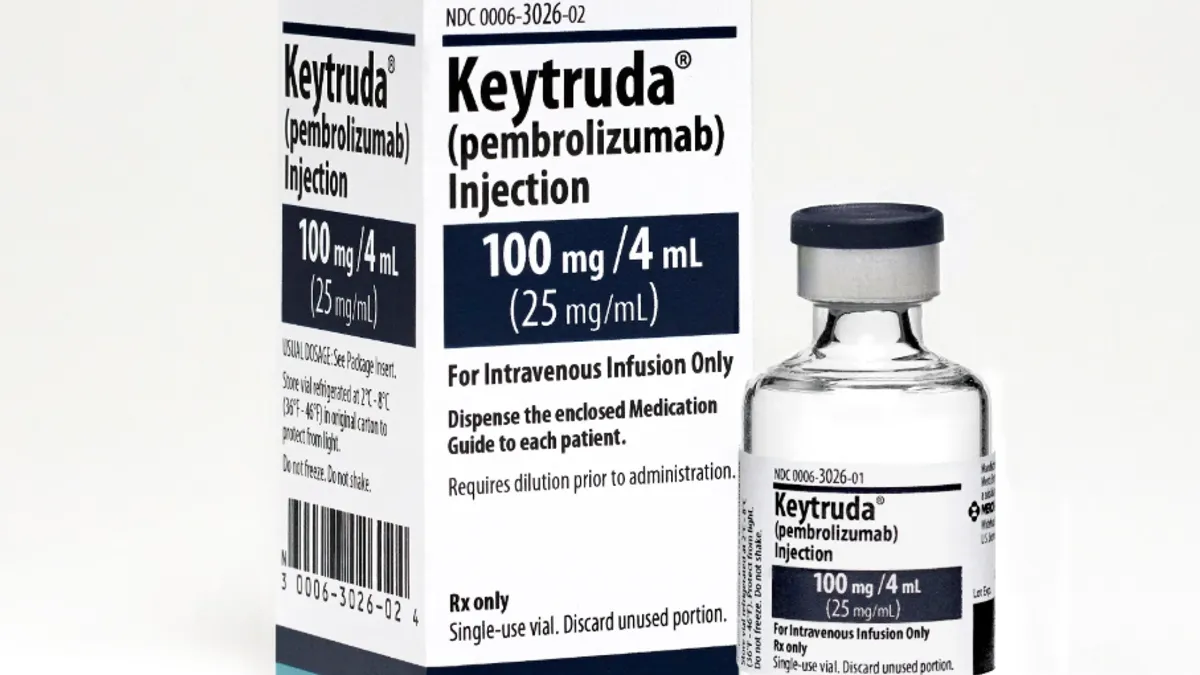A New Option for PAH
Preston Klassen, M.D., Executive VP, Research and Development and Chief Medical Officer, Arena Pharmaceuticals, talks about the company’s efforts to develop a new therapy for pulmonary hypertension.
 Pulmonary arterial hypertension (PAH) is a rare disease that affects the heart and lungs. It is a progressive disease, with high blood pressure in the pulmonary artery, the blood vessel that carries blood from the heart to the lungs. This condition can lead to impairment in blood flow through the lungs and ultimately heart failure and cardiovascular events, including death.
Pulmonary arterial hypertension (PAH) is a rare disease that affects the heart and lungs. It is a progressive disease, with high blood pressure in the pulmonary artery, the blood vessel that carries blood from the heart to the lungs. This condition can lead to impairment in blood flow through the lungs and ultimately heart failure and cardiovascular events, including death.
While there are therapies on the market to treat PAH, there is still an unmet need in the market.
In particular, oral therapies have yet to produce the type of benefits that the gold standard of intravenous infusion therapies can provide, which are reserved for the sickest patients because of the complexities of delivering continuous IV therapy.
Arena Pharmaceuticals hopes to bridge the therapy gap through its development of ralinepag, an oral, next-generation selective IP (prostacyclin) receptor agonist targeting the prostacyclin pathway. Ralinepag is a potent mediator of a number of biologic responses predominantly in the pulmonary vasculature system, says Preston Klassen, M.D., executive VP, research and development and chief medical officer at Arena Pharmaceuticals.
“Ralinepag combats the excessive vasoconstriction of the pulmonary vasculature and inhibits both vascular smooth muscle cell proliferation and platelet aggregration," Dr. Klassen explains. “The actions of the compound directly address fundamental aspects of pathophysiology and improve blood flow through the lungs."
With this oral therapy, Arena has tried to mimic the potency and pharmacokinetic profile of IV prostacyclin therapy, a gold standard of therapy.
“Infusion of epoprostenol works very well, but it is reserved for the sickest patients because it requires continuous intravenous administration," Dr. Klassen says. “Our therapy is a pill that allows more continuous engagement of the prostacyclin receptor during the dosing interval. We think that is very important to realize the pharmacodynamic and clinical benefits of this class of drugs."
In July, the company announced the results of a positive Phase II trial for ralinepag. In this 61-patient study, the primary efficacy analysis demonstrated a statistically significant absolute change from baseline in pulmonary vascular resistance (PVR) compared with placebo. Ralinepag also demonstrated numerical improvement in six-minute walking test.
Arena is planning to begin a Phase III trial in 2018, with endpoints that will examine clinical outcomes such as clinical disease progression or worsening and hospitalization and mortality, as well as a six-minute walk.
“We are working to design the right program to expeditiously move us toward approval, providing regulators and the community with the appropriate information demonstrating the clinical benefit of ralinepag," Dr. Klassen says.
Arena has gone through a reset over the last 12 to 18 months. The company changed its focus from working on a late-stage obesity development program and early-stage drug discovery to bringing forward a variety of clinical development candidates across a fairly broad array of compounds in several therapeutic areas.
In January 2017, Arena granted exclusive, royalty-bearing license to develop, manufacture, and commercialize Belviq in all countries and territories of the world to Eisai. Under this agreement, Eisai acquires all of Arena’s rights to develop and market the product, which was approved by the FDA in 2012 as an adjunct to a reduced-calorie diet and increased physical activity for chronic weight management in adult patients.
“We’re moving to become a more focused clinical development organization and we have a number of important catalysts that over the rest of this year and into next year that will provide important data readouts on a number of Phase II programs," Dr. Klassen says.
Arena has a broad array of drug candidates across a variety of therapeutic areas that have all been derived from its internal and long-term research and discovery efforts in the area of G protein-coupled receptor biology.
Etrasimod (APD334) is in Phase II program for multiple autoimmune indications, including ulcerative colitis (UC), and APD371 is in Phase II evaluation for the treatment of pain associated with Crohn’s disease.
In addition, Arena has collaborative agreements with several pharmaceutical companies, including Eisai, Axovant Sciences, and Boehringer Ingelheim. (PV)
~~~~~~~~~~~~~~~~~~~~~~~~~
PAH Facts
Pulmonary arterial hypertension is a severe condition that causes damage to the pulmonary arteries, which are responsible for transporting blood from the heart right ventricle to the lungs. Hypertension causes the arteries to become narrowed and blocked, which makes the heart work harder to properly pump the blood, which can make the right ventricle weak and enlarged.
Pulmonary hypertension can occur as a result of other conditions such as lung or heart diseases, as well as from congenital heart defect, connective tissue disease, coronary artery disease, high blood pressure, liver disease (cirrhosis), or blood clots to the lungs. Pulmonary hypertension has an estimated prevalence of one to two cases in every 1 million Americans.
The disease is two to four times more common among women than men, with an average age at diagnosis around 45 years old.
The prevalence of the disease among patients with systemic sclerosis is about 10%, with sickle cell disease at about 3%, and among HIV patients at 0.5%. Heritage is also particularly important for PAH, but the exact percentage of patients with genetic-related PAH is not known.
Source: Centers for Disease Control and Prevention



















